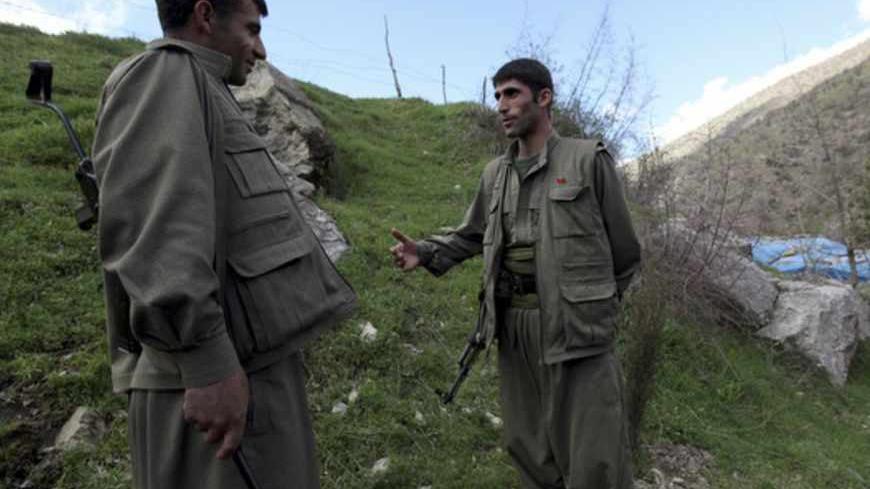While Abdullah Ocalan, leader of the Kurdistan Workers Party (PKK) pursues the cease-fire plan with Turkish Prime Minister Recep Tayyip Erdogan, the PKK is also involved in a subtle power struggle across Turkey’s borders. This struggle is being played out by the PKK’s efforts to check the influence of Massoud Barzani, president of the Kurdistan Region of Iraq, over leadership of the Kurds. By engaging in the Kurdistan Region’s messy pre-election politics and supporting the opposition Change Movement (Goran), the PKK is attempting to stifle a third mandate for Barzani, while stirring local criticism of the Kurdistan Regional Government (KRG). These PKK interventions are unlikely to alter the status quo in the region — at least for the forthcoming elections — however; they are fueling political fragmentation and creating additional challenges to regional stability.
Indeed, rivalries between the PKK and Barzani’s Kurdistan Democratic Party (KDP) are nothing new. During the Iraqi Kurdish civil war of the 1990s, the PKK and KDP engaged in armed conflict against each other, as well as the KDP against the Patriotic Union of Kurdistan (PUK). The Ocalan-Barzani competition re-emerged after the Syrian civil war broke out, and as different Syrian Kurdish groups backed by the PKK and its affiliate, the Democratic Union Party (PYD) vied for power with the KDP-supported Kurdish National Council. This rivalry continues with Barzani tied to Turkey and attempting to court Syrian Kurdish youth groups and independents away from PYD influence.


